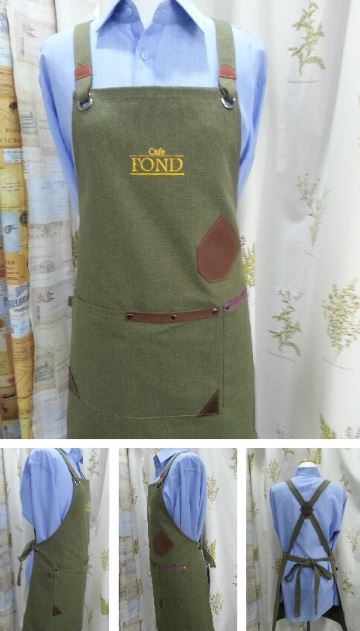Lee Soo In is a North Korean defector from Hamhung who first came to South Korea in 2006. These days, she is just like any other middle-aged woman, living day-to-day and wondering how she will secure a living as she grows older. After working as a manager for a curtain manufacturer, Lee began searching for a more sustainable career path that she could continue with into her senior years. A friend suggested that she could learn how to use a sewing machine.
“I believe that when you want to learn something, you have to start from the basics. When I first started, I was traveling from Ilsan to Bundang, Monday through Saturday,” Lee said, modestly describing the dedication that has led her all the way to owning her own tailoring business.
She began her journey as a young woman in her 30s, with an investment in a sewing machine. Although the machine was an expensive purchase for her, Lee believes that risks must be taken in order to succeed, so she went ahead and spent a significant proportion of her nest egg on the investment.
After resigning from her position at the curtain manufacturer, Lee could have gone ahead and started her tailoring business immediately, but she instead began working for an electronics company as she decided she first needed to learn more about machinery in order to succeed as a tailor. Thus began a new stage in her life, practicing her sewing from early mornings and working at the company during the day.
Believe in yourself but learn from others
After losing her parents when she was just 25 years old, Lee realized that she had to rely on herself. She worried about how she would make a living and deal with discrimination from South Koreans, and overcame many difficulties alone.
Lee moved from work between a restaurant, a factory, and a farm after she arrived in South Korea. But as a defector, she was at times poorly treated by numerous employers, many of whom did not pay her the same wage as her fellow employees. She described how even after 2 years in a position, she was still being unfairly treated by her employer.
Many other defectors that Lee knew were experiencing similar issues. While all people in South Korea can report such illegal behavior to the Ministry of Employment and Labor, the truth is that most defectors are unaware of the process.
But Lee made an effort to understand her rights and used them to her advantage. She informed her employers that she knew her rights, thereby discouraging them from cheating her out of pay. Lee also stressed the importance of challenging discrimination and persuading others to treat defectors just like anyone else.
She also had to overcome her own prejudices. Lee had come to view South Koreans in a negative light after a series of negative experiences after she first arrived in the South. But as a citizen of South Korea now herself, she believes she has to learn from those around her and follow the way they speak and act in order to get along. Although she has dealt with many personal struggles during this process, she holds a positive outlook on life.
Lee came to realize that many aspects of South Korean society were different to what she first thought. For instance, she originally believed after watching South Korean dramas that all women have terrible relationships with their in-laws. But she met many friends who got along just fine with their in-laws.
Since many in South Korea show disdain for the tone and accent of the North Korean dialect, Lee resolved to adopt the South Korean accent. Once repulsed by the idea, she concluded that it was necessary. With the help of her friends, she eventually achieved her goal and now says she is thankful for the decision.
A new project and a creative outlet

Having overcome many challenges, Lee is now a custom producer of aprons and bandanas in addition to running a tailoring service. She receives custom designs from her clients and personally scours the local market for the best materials. Lee has also acquired a penchant for excellent customer service after having had so many bad experiences of her own. If a customer complains about a size issue for instance, she does not hesitate to replace it. Her level of service has paid off, as Lee notes that her customers often recommend her to their friends.
Her side business also supplements her income during the holidays and other slow seasons for the tailoring business, and Lee does not spend much time on promotion. Word of mouth and an online presence has so far brought her orders from companies, coffee shops, and others. Customers are also able to place orders through her Naver blog.
But there is another person whom Lee is most thankful for in her journey: her husband. Acting as her ‘soother,’ Lee’s husband assists her with running her business and even suggests ideas and designs – allowing her to dedicate more time to learning and creating her own designs. Lee says that she will soon be able to release her new line of bandanas and baby bibs.
At the end of our conversation, Lee once again stressed the importance of continuing education and “putting that education to good use.” She is looking forward to the future, trying to forget her difficult past and focusing on her new life – an approach that she hopes all defectors can take to heart.
※This article was made possible in part by funding from the Korea Press Foundation


















